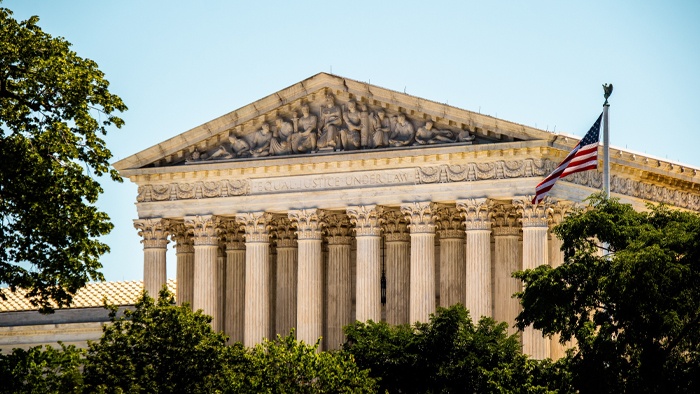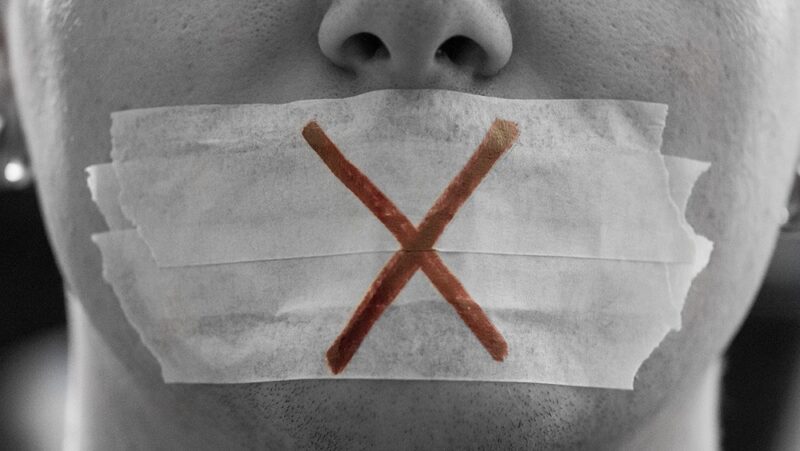5 June Anniversaries that Defined our First Amendment Rights

June, when the Supreme Court wraps up its term each year, is often a big month for rulings with significant impact. Here are five times the court’s June rulings defined and refined what the First Amendment protects in practice.
Public schools can’t push prayer | June 25, 1962
The Supreme Court said 60 years ago in Engel v. Vitale that public school-sponsored prayers are unconstitutional.
Public schools, as an arm of the government, cannot lead students in prayer, because the First Amendment prohibits “an establishment of religion.” In other words, the government cannot favor any particular religion over any other belief system. Students can still learn about different religions as long as the curriculum neither promotes nor denigrates religion.
This ruling made schools more inclusive and equitable for students who aren’t part of a dominant or majority faith group.
The ruling did cause some confusion. Some schools stopped students from praying at school altogether. But the First Amendment also protects the free exercise of religion, so students are free to choose to pray at school.
The tension between religious expression and schools’ obligation not to endorse any specific faith remains today. The Supreme Court is now considering questions about when it’s OK for public school officials to pray and whether it’s OK for the government to help fund private schools that focus on faith.
“Government in this country should stay out of the business of writing or sanctioning official prayers and leave that purely religious function to the people.”— Justice Hugo L. Black
Government can’t punish expression just because it doesn’t approve of the ideas expressed | June 22, 1992
The First Amendment is not absolute. There are a few types of speech that government can create laws to limit and punish, like true threats and fighting words. But those laws must be very specific and narrow to be allowed. They also can’t target any particular message or viewpoint. In R.A.V. v. City of St. Paul, the Supreme Court ruled that a St. Paul, Minn. law used to prosecute a group for burning a cross missed the mark.
The state supreme court said the law was specific enough, but the U.S. Supreme Court justices thought that the law punished only particular viewpoints. They struck down the law.
In 2003 in Virginia v. Black, the court said that it’s OK to outlaw and punish cross burning when it’s done in order to intimidate, which would make it a true threat, one of the specific types of speech not protected by the First Amendment.
Congress can’t tell states to protect religious freedom beyond what the First Amendment provides | June 25, 1997
The First Amendment protects the right to practice one’s faith, but what if your religion entails something that’s otherwise illegal – like smoking peyote? The Supreme Court has said it’s OK to limit that expression as long as the rules apply to everyone.
In 1993, Congress passed the Religious Freedom Restoration Act (RFRA), which required state and federal laws to meet a different standard: Laws that could limit religious practice would have to have a very good reason to burden believers and be as permissive as possible.
But in City of Boerne v. Flores, the Supreme Court said Congress couldn’t impose that standard on states.
Since then, many states have passed their own separate laws to increase protections of religious expression. Congress also passed a more limited law to protect religious practices of people in prison or other programs that are federally funded, and RFRA still applies to federal laws.
Government can’t stop news from being published without a very good reason | June 30, 1971
In 1971, a whistleblower shared government documents about the Vietnam War with the media. The documents showed that the war wasn’t going as well as the Defense Department had portrayed to Congress and the public. The government tried to stop The New York Times from publishing the Pentagon Papers, claiming it would harm national security.
The Supreme Court in New York Times Co. v United States said the publication had to be allowed. Prior restraint, or preventing news from being published, could only be allowed when publication “will surely result in direct, immediate, and irreparable damage to our nation or its people.” This very high burden for demonstrating national security interests was not met in this case because the government only offered broad and vague claims of harm.
Court sets the stage for free speech on the internet | June 26, 1997
In 1996, the internet was very new. Congress, concerned about easy access to all kinds of content, quickly passed the Communications Decency Act to regulate the web. It prohibited transmitting or displaying “indecent” or “patently offensive” online content to people under the age of 18.
The Supreme Court in Reno v. American Civil Liberties Union said “indecent” and “patently offensive” were way too broad. The law would bar pornography online – one of the primary intents of the law – but because the terms weren’t defined, it could potentially mean censorship of content protected by the First Amendment too. The court allowed a prohibition of obscene speech, as that term is specifically and narrowly defined by law.
The court felt the same way about Congress’s next attempt to limit content online, the 1998 Child Online Protection Act, which criminalized commercial web content “harmful to minors.” This law was also overturned after free speech and LGBTQ groups pointed out that the law could limit lifesaving information about HIV and AIDS.
These rulings set the stage for more free transmission of information online, with sites free to choose what to display.
For updates on new First Amendment court rulings and how they could affect you, sign up for the weekly First Five newsletter.
What Is a Gag Order? Definition, Examples and More
Perspective: Supreme Court Sides with First Amendment Freedoms, But Questions Linger
Related Content

